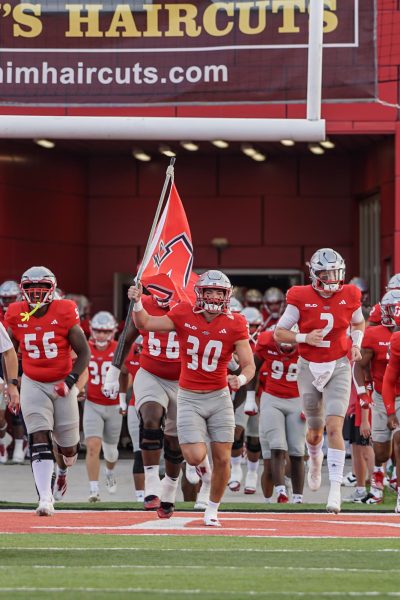Differential tuition floated as possible budgetary fix
The idea of differential tuition, or charging students different amounts for tuition based on a variety of factors, like major or years spent in school, has been floating around the state capitol as a possible solution to the gap in the state budget.
According to an article in the Times Picayune, state legislators have discussed the idea of differential tuition in the past, but have never approved it.
Nicholls State University President Bruce Murphy still maintains that he does not want to raise tuition.
“Differential tuition gives the campus authority to do things with the tuition that we hope would attract students and be beneficial to students,” Murphy said.
He also said it could be viewed as a way of covering the costs of some programs, based on the fact that some programs are more expensive to offer than other programs.
James Madison University’s website stated that two-thirds of all Association to Advance Collegiate Schools of Business accredited schools in the United States employ differential tuition for their business programs.
“Because we have an AACSB accredited business school, it’s more expensive for the degrees of the faculty that we are required to have,” Murphy said. “In order to get those people and keep those people, we pay them a higher salary. That’s a fact of life that faculty members in some disciplines earn more than faculty members in other disciplines.”
Murphy does not see differential tuition as a way to close the budget gap.
“I maintain that differential tuition is revenue neutral,” Murphy said, “in other words, for every one we raise, we should lower another. It’s really a matter of fairness, not a matter of dollars. Theoretically, you shouldn’t save any money.”
There are some other ways of putting differential tuition into effect without charging different amounts by program.
Murphy mentioned another method of differential tuition called “guaranteed tuition.”
Murphy said, “this means when you come in as a freshman, we say your tuition will be this amount for four years. Our promise to you is if you graduate on time, we will never raise the tuition on you.
“I like it most because it gives students an incentive to graduate on time,” Murphy said. “I think that’s much more attractive, but we don’t have the authority to do that right now.”
Louisiana is the only state where it takes two-thirds of the legislature to change tuition.
Another idea similar to that would be to increase tuition steadily over students’ four years, and if they graduates on time, Nicholls would give them a “graduation gift” of the percentage that increased over the years.
Murphy said that many critics argue Taylor Opportunity Program Scholarship will cover any tuition increases made by the state, but only 36 percent of Nicholls students receive TOPS scholarships.
“The vast majority, almost 75 percent of our students are not on TOPS. So when we raise tuition, they have to pay,” Murphy said. “We pay almost a million dollars in scholarships because… we believe in access. We believe that students ought to be able to come to school and they shouldn’t go broke doing it.”
Some students were not very excited about the “solution” of differential tuition with regards to charging more by program.
Dylan Picolo, a culinary arts sophomore from Destrehan, said he felt there was already a sense of understood differential tuition and charging by major would put a larger burden on students.
“If you have lab classes, you have certain lab fees assigned to it. I feel as though differential tuition is already in place to a small extent,” Picolo said.
“As far as it goes, I don’t think it’s a great idea. Tuition in itself is already high enough… Say they want to major in something that has a higher tuition rate; it might make it harder than it needs to be or impossible for them to attend college.”
Sebie O’Neill, a psychology senior from Lindsay, Ontario, Canada, said that it might get out of hand if students were charged by their program.
“I think we should all be paying the same amount of tuition,” O’Neill said.
Murphy said, “If it comes to pass that we’re granted that authority, then we have to say ‘do we want to do it?’ If we say that, then we have to say, ‘how should we do it?’”
“It will take a lot of analysis,” Murphy said, “It’s not something you’re going to see next year.”






